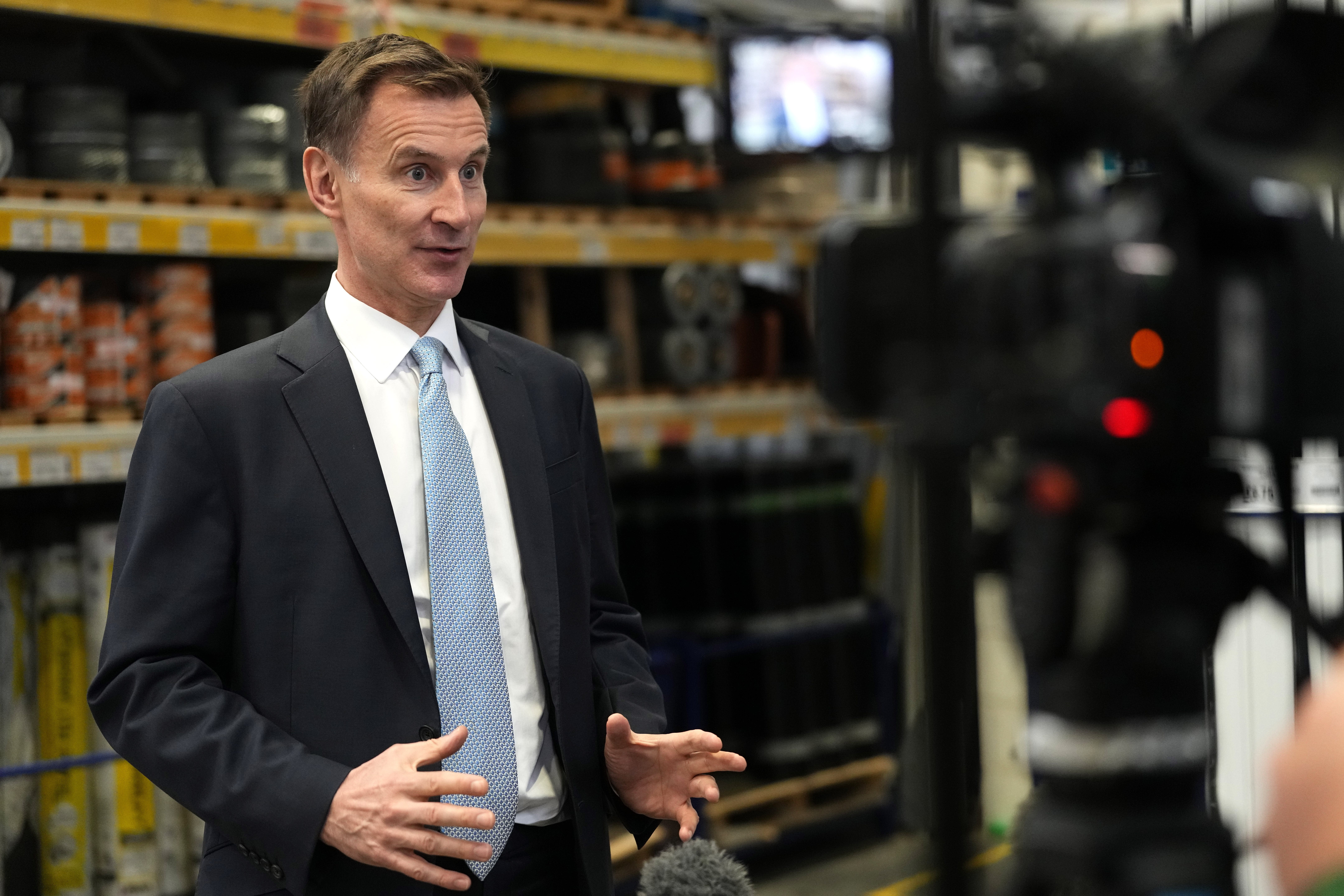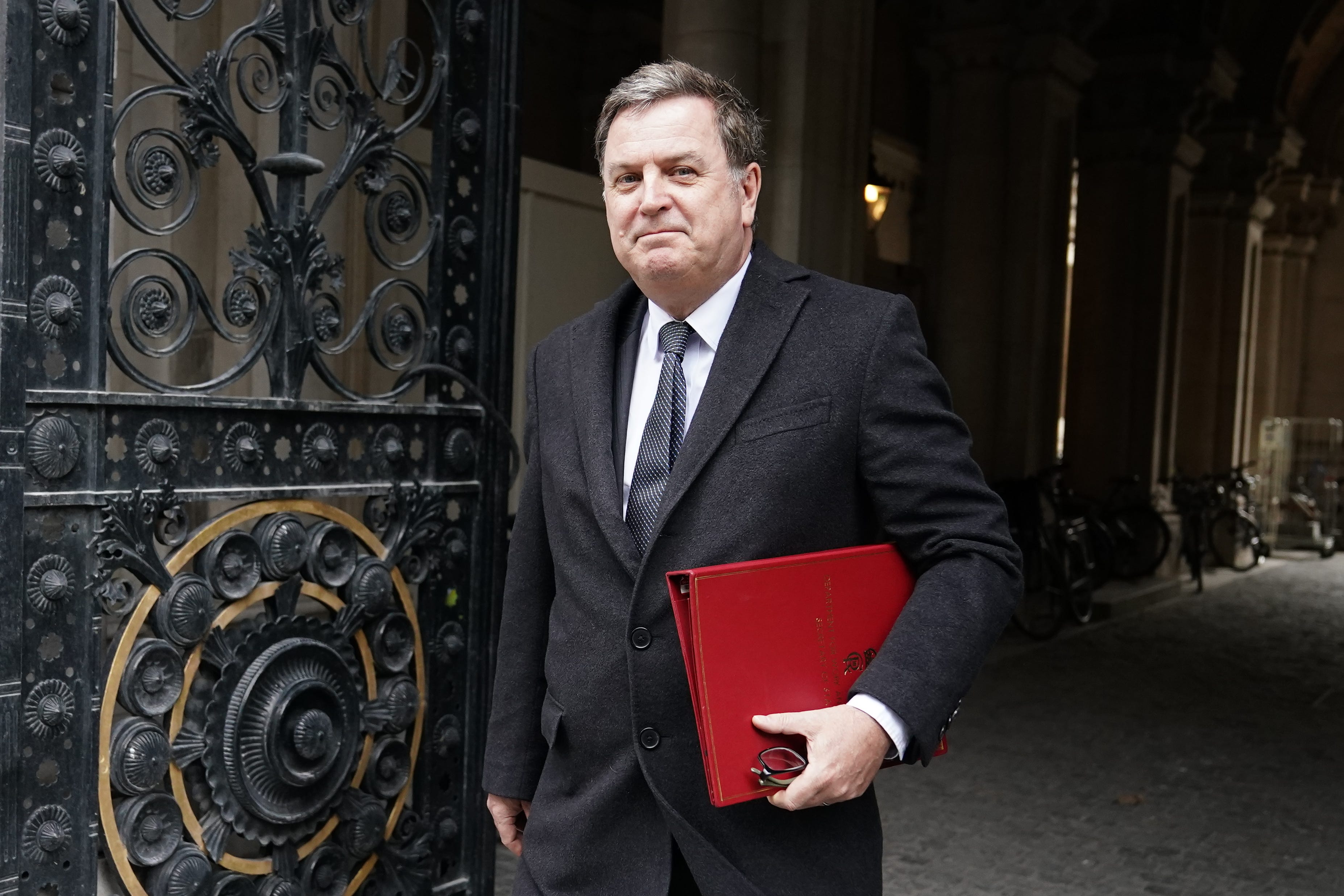Jeremy Hunt insists there is ‘ample opportunity’ for unemployed to find jobs
Jeremy Hunt and Mel Stride said the economy is doing ‘far better than many would have you believe’

Your support helps us to tell the story
From reproductive rights to climate change to Big Tech, The Independent is on the ground when the story is developing. Whether it's investigating the financials of Elon Musk's pro-Trump PAC or producing our latest documentary, 'The A Word', which shines a light on the American women fighting for reproductive rights, we know how important it is to parse out the facts from the messaging.
At such a critical moment in US history, we need reporters on the ground. Your donation allows us to keep sending journalists to speak to both sides of the story.
The Independent is trusted by Americans across the entire political spectrum. And unlike many other quality news outlets, we choose not to lock Americans out of our reporting and analysis with paywalls. We believe quality journalism should be available to everyone, paid for by those who can afford it.
Your support makes all the difference.Unemployment benefits are being used as a “lifestyle choice” rather than a “safety net” by some, ministers have warned as they said there is “ample opportunity” for those who want jobs to find them.
Chancellor Jeremy Hunt and work and pensions secretary Mel Stride said the economy is doing “far better than many would have you believe” and told people out of work there is no good reason to languish on benefits.
In a joint op-ed for The Times, the pair acknowledged the challenge of long-term sickness, which stands at a record 2.8m - almost 800,000 higher than pre-Covid levels.

Mr Hunt and Mr Stride promised “the most radical welfare reforms in a generation” to get people back into work.
The reforms include benefits being stopped if someone does not comply with conditions set by a work coach, and a pledge to “tighten” the work capability assessment (WCA).
Rishi Sunak has also promised to reform personal independence payments (PIP), potentially requiring greater medical evidence while some with mental health conditions would be offered talking therapies rather than cash transfers.
In a warning to those struggling to find jobs, Mr Hunt and Mr Stride said: “We’ve been clear that unemployment benefits should only be there as a safety net, not a lifestyle choice. With around 900,000 vacancies in the economy there are ample opportunities for people to get on and get ahead in the world of work.”
The warning came after Britain’s unemployment rate jumped to its highest level for nearly a year.

The Office for National Statistics (ONS) said the rate of UK unemployment rose to 4.3 per cent in the three months to March, which is the highest since May to July last year and up from 4.2 per cent in the previous three months.
In other signs of a cooling jobs market, more timely figures from HM Revenue & Customs estimated the number of UK workers on payrolls tumbled by 85,000 to 30.2 million in April, which is the largest fall since May 2020, although the ONS said this was subject to revision.
Vacancies in the jobs sector also dropped by 26,000 quarter on quarter to 898,000 in the three months to April.
And despite Mr Hunt and Mr Stride claiming there is “ample opportunity” for people to find work, the number of unemployed people per vacancy has continued to rise toward pre-Covid levels.
In the first three months of 2024, the number of unemployed people per vacancy rose to 1.6. That compares to 1.4 unemployed people for every vacancy from last October to December.
The Conservative ministers insisted “our economic record is strong and our labour market resilient” as they said “the ONS itself has expressed some caution about the data being produced by its surveys”.
“It is important not to be alarmist,” they added.
Join our commenting forum
Join thought-provoking conversations, follow other Independent readers and see their replies
Comments